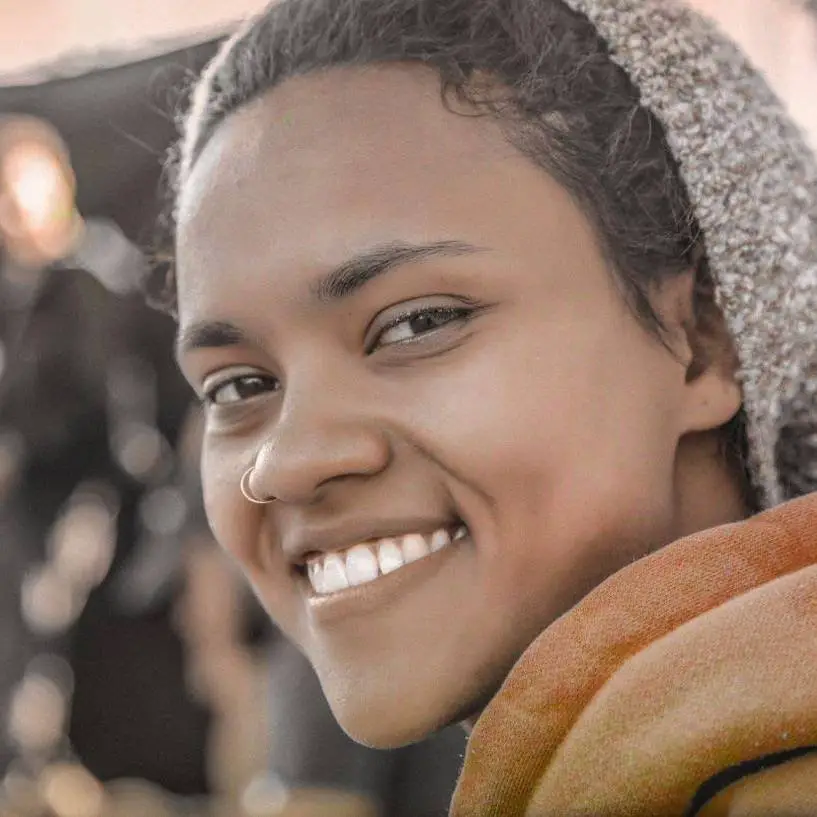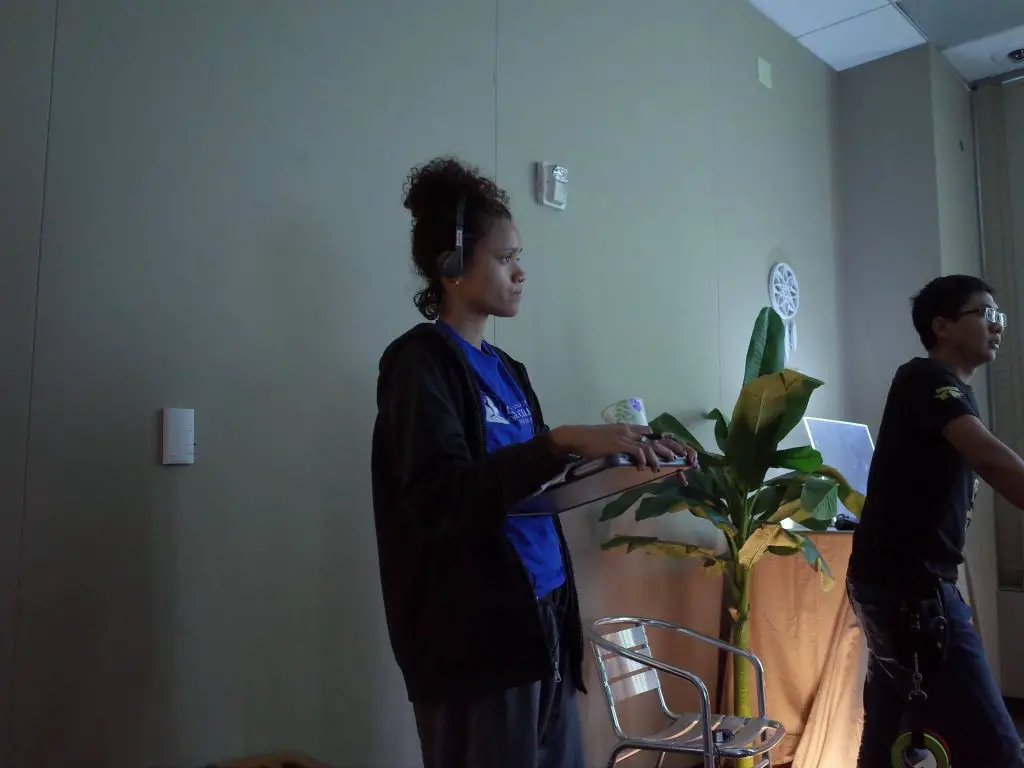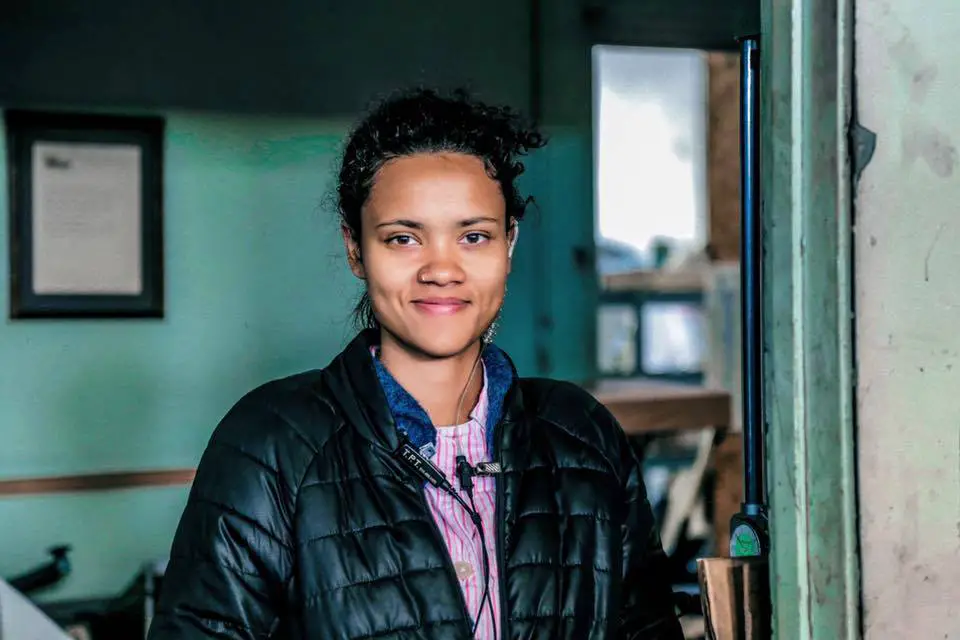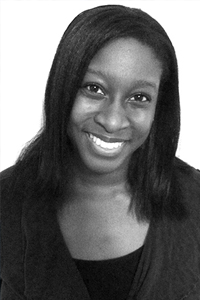Even in a post-Obama America, race continues to be a contentious issue in society.
While some choose to avoid the topic entirely, filmmaker Rachel Bass creates stories that shine a spotlight on the injustice of the current status quo. Having won a Director’s Guild of America student award, there’s no denying that Bass’ storytelling cuts deep. Instead of shying away from the subtler forms of institutional racism in society, she charges head-on.
Bass’ childhood was anything but boring. Born and raised in West Chicago, she spent the first eight years of her life being homeschooled, along with the rest of her six siblings, by her mom. Determined to ensure that her children did not grow up ashamed of their blackness, Mrs. Bass harnessed the power of classical fairy tales, with a slight twist. Before reading the stories to her children, she colored all the characters in with brown crayon and changed the stories around to fit the aesthetic.
“So, to me, Snow White was actually Chestnut Brown with hair as black as ebony. Mary had a little lamb with fleece as brown as wheat, and everywhere that Mary went, the lamb was sure to bleat,” Bass says.

The Bass family also didn’t own a television for a long time. Instead, the children were encouraged to play outside, read voraciously and dedicate an hour a day to sitting still and letting their imaginations run wild. Interestingly enough, Bass attributes these events in her childhood to her interest in film direction. Instead of traditional movies, the Chapman student associates filmmaking with imagination, storytelling and image manipulation, exactly what her mother did. But, it wasn’t all fairy tales for the family.
Facing Race
“My mother never sheltered us from the realities of racism. We were never too young to know the truth,” says Bass.
Despite Bass’s stellar academic record, she was funneled into the West Chicago “housing system,” a program in which students received differing qualities of education based on what teachers assumed the student’s future to be like. Unsurprisingly, the bar was set low for children of color. This led to Bass initially being put in classes where there was no reading, no assignments and no plan for the students to learn anything.
While her parents quickly demanded for the school enroll her in more challenging classes, Bass points out that many of her peers weren’t as lucky, “I happened to have parents that came in and said ‘No, my kid is not just going to be babysat.’ But not everyone had parents that would come in and fight for them like that.” Thanks to the persistence and support of her parents, Bass graduated top of her class as valedictorian; next up was college.
Bass says, “When I had the opportunity to go to Amherst and major in Black Studies and be around black people and not have to deal with that [racist] crap on a day-to-day basis, I leaped at the opportunity.”
Film Noir
Although Bass enjoyed her time at Amherst, the real challenge came after moving to Orange County, California, to attend Chapman College’s film school. While Amherst was somewhat similar to her high school experience, the OC was a mysterious study in conservative whiteness. Making films about the black experience was a challenge that Bass was determined to take on.
“Films in Hollywood are constantly exploring the white psyche,” says Bass. “Black people know everything about white people. You can’t study African American history without studying white people. We’re just constantly used to understanding them when there’s no understanding the other way.”
Eager to share her thoughts and feelings on race, Bass focused her efforts on dramatic films that captured the gravity of the problem. However, she discovered that the discussions she tried to have often came across as one-sided. “I find, as a storyteller, what I’m struggling with a lot and what a lot of my professors here have been telling me is that when you represent a story or a human being on the screen, you have to inhabit their perspective and you have to be on their side, not morally, but you have to accurately represent their point of view and not portray them as this 2D character just to make audiences immediately hate them.”
Black Magic
In 2016, Bass won the Director’s Guild of America Jury Award for her film, “Black Magic.” The movie tells the story of a young African-American girl who works as a daycare assistant. Despite the population of kids being predominantly black, the head teacher insists on having the children embrace white tropes to appease her white son, who also attends the daycare. The assistant and the son butt heads when the assistant asserts that not everything should be filtered through a white lens.

Although Bass describes winning a DGA award as extremely validating, she points out that many people didn’t like the film, including professors from Chapman and famous Hollywood producer Tony Bill. They told her the film had no story, no relatable characters. Bass was discouraged, but not for long. Says Bass, “I had three other professors come up to me afterwards and tell me [what the panel said] was bullshit.”
“That’s the kind of filtering you have to do a lot in film school. You come to get your films ripped apart and learn, but what’s frustrating is when you deal with perspectives that are not your own, you have to ask, ‘Okay, are these critiques that are going to help me as a storyteller, or is it that you, as the critic, just can’t identify with this?’”
Racism vs. Humanity
Although Bass understands how prickly the topics she tackles are, her aims are anything but.
“A lot of people think that I make films about black people for black people, but no. I actually make films about white people because I’m interested in making fantasies that represent people of color. But, in addition to that, whenever I’m making some sort of racial commentary, I like talking about the problems black people face against racism, against the inferiority complex.”
She also acknowledges that the themes she deals with are heavy, but the outcome is worth it. “It’s three-dimensional people and it’s humanity that changes viewers,” she says. “It’s not you preaching at people. People don’t want to feel preached at, but they want to change. That’s the thing about powerful storytelling. When you watch a movie, it can actually change you.”










